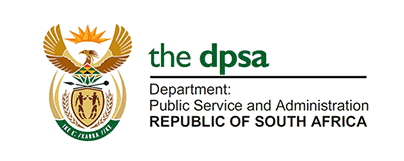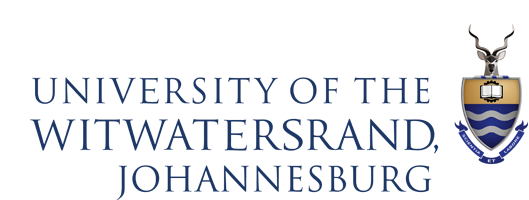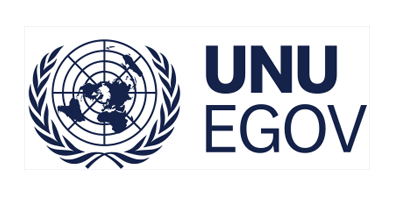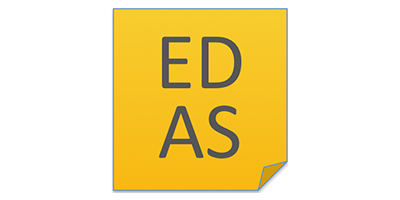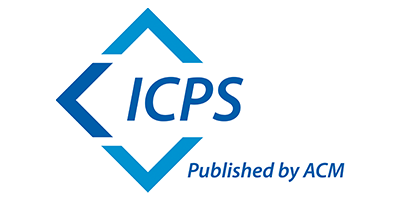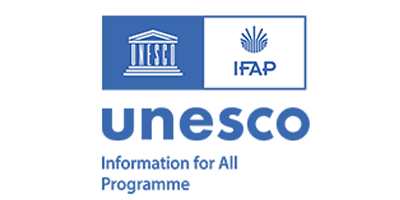Summary
About
The 13th International Conference on Theory and Practice of Electronic Governance (ICEGOV 2020), originally scheduled to take place in Athens, Greece, from 1 to 3 April 2020, was held instead on 23-25 September 2020 as a fully online conference in real-time. This was due to the COVID-19 pandemic, which brought massive disruption to most countries of the world, including lockdowns, travel bans, and closure of borders, conditions that did not allow people to physically meet, as is usual.
Under the theme Digital Governance in the Era of Disruptive Technologies and Globalisation, ICEGOV 2020 explored how existing and emerging digital technologies can be effectively harnessed to foster inclusiveness, equality, and sustainability. It also addressed the implications and costs associated with the use of such technologies. Several tracks on diverse themes were available for paper submission, ranging from broad topics in the field, such as digital transformation, to more specific topics, such as smart cities, security and privacy, open government, digital citizenship or government research and policy.
Much like its past editions, the conference featured a rich programme of Keynote Lectures (6), Plenary Sessions (4), Paper Sessions (16), Invited Sessions (6), and a Poster Exhibition during its 3-day duration. Further to this, 5 Workshops and the Doctoral Colloquium took place on the pre-conference day. All was based on submitted or invited contributions by researchers, experts, policy-makers, and practitioners from around the world.
Call for Papers
Due to the unusually long organisational period of the conference (around 15 months), two Call for Papers were issued: the regular Call for Papers in June 2019 and a Special Call for Short Papers in July 2020. In response to both calls, the conference received a total of 209 paper submissions written by 288 authors from 51 countries.
Subsequently, there were two double-blind peer-review processes carried out by the Programme Committee, which was composed of 221 people from 53 countries. This review process resulted in 478 reviews and 122 accepted papers written by 308 authors, which are published in the conference proceedings.
Best Paper Awards
The winning papers in each category are shown below. The choices were carried by the Awards Committee.
Best Research Paper: Mapping crime descriptions to law articles using deep learning (M. Vink, N. Netten, M. S. Bargh, S. van den Braak, S. Choenni).
Best Ongoing Research Paper: A first approach towards integrating computational argumentation in cognitive cities (C. I. Chesñevar, M. P. González, A. Maguitman, E. Estevez).
Best Short Paper: Agility in public sector IT projects (M. Dietel, M. Heine).
Best Poster Paper: Modeling city land use with an ontology (N. Chichkova, A. Begler, V. Vlasov).
Statistics
If you would like to obtain more data than what is available on this page, please email your request to icegov@icegov.org.
Attendance: 341 people
- Academia: 190
- Government: 49
- Industry: 46
- International Organisations: 36
- Other: 20
Gender balance: n/a
Countries: 55
Country distribution: 28 developed (251 people), 27 developing (90 people)
Papers submitted: 209
Authors (from submissions): 288 authors from 51 countries
Papers published: 126
Authors (from accepted): 314 authors from 37 countries
Acceptance rate: 38%*
Scholarships awarded: 32
Programme Committee: 221 members from 53 countries provided 478 reviews
*the acceptance rate includes only full and short papers; poster papers, workshops or invited talks are not considered.
Proceedings
Publications
Institutions
Patron
- Ministry of Digital Governance, Hellenic Republic
Organisers
- University of the Aegean
- Harokopio University of Athens
- United Nations University Operating Unit on Policy-Driven Electronic Governance (UNU-EGOV)
Sponsors
- Deloitte
- UniSystems
- Intrasoft International S.A.
- Pylones
- Xcential
Supporters
- ManyLaws
- ACM Press
- Danube University Krems
- ISA2 – Interoperability Solutions for Public Administrations, Businesses and Citizens
- Central Union of Municipalities of Greece (KEDE)
- DAEM S.A.
- Elsevier
- European Commission
- Huffington Post
- CONVIN – Professional Conference Organizer
Comittees
Conference Committee
Dimosthenis ANAGNOSTOPOULOS, Hellenic Ministry of Digital Governance • Conference Chair
Anabela PEDROSO, Secretary of State, Ministry of Justice of Portugal • Conference Chair
Yannis CHARALABIDIS, University of the Aegean, Greece • Programme Committee Chair
Maria Alexandra CUNHA, Getúlio Vargas Foundation, Brazil • Programme Committee Chair
Demetrios SARANTIS, United Nations University (UNU-EGOV), Portugal • Programme Committee Chair
Charalampos ALEXOPOULOS, University of the Aegean, Greece • Local Organisation Chair
Cristina BRAGA, United Nations University (UNU-EGOV), Portugal • Conference Secretariat
José Luís FARIA, United Nations University (UNU-EGOV), Portugal • Conference Secretariat
Mariana LAMEIRAS, United Nations University (UNU-EGOV), Portugal • Workshops Coordinator
Morten MEYERHOFF NIELSEN, United Nations University (UNU-EGOV), Portugal • Invited Sessions Coordinator
Mário PEIXOTO, United Nations University (UNU-EGOV), Portugal • Communications Chair
Elisabete SIMÕES, United Nations University (UNU-EGOV), Portugal • UNU Organisation Chair
ICEGOV Steering Committee (2020)
Elsa ESTEVEZ, National University of the South, Argentina • Chair
Soumaya BEN DHAOU, United Nations University (UNU-EGOV), Portugal
John BERTOT, University of Maryland, United States
Lemuria CARTER, University of New South Wales, Australia
João Álvaro CARVALHO, University of Minho, Portugal
Wojciech CELLARY, Pozna? University of Economics and Business, Poland
Mark GREGORY, RMIT University, Australia
Paul HECTOR, UNESCO Regional Bureau for Sciences in the Arab States, Egypt
Tomasz JANOWSKI, Technical University of Gda?sk, Poland
Marijn JANSSEN, Delft University of Technology, Netherlands
Theresa PARDO, University at Albany (SUNY), United States
Peter PARYCEK, Danube University Krems, Austria
Delfina SOARES, United Nations University (UNU-EGOV), Portugal
Luís SOARES BARBOSA, United Nations University (UNU-EGOV), Portugal
Awards Committee
João Álvaro CARVALHO, University of Minho, Portugal • Chair
Marie Anne MACADAR, Federal University of Rio de Janeiro, Brazil
Marijn Janssen, Delft University of Technology, Netherlands
Ramon Gil-Garcia, University at Albany (SUNY), United States
Local Organising Committee
Georgia MENTI, Congress Director, CONVIN, Greece
Filippos MILIONIS, Project Manager, CONVIN, Greece
Alkis POLYRAKIS, Technical Director, CONVIN, Greece
Ilia TOULI, Congress Coordinator, CONVIN, Greece
Harris TZANAVARIS, Marketing and Communications Executive, CONVIN, Greece
Vicky DENAXA, E-Publishing Coordinator, CONVIN, Greece
Vasiliki CHRYSOCHOOU, Business Development Coordinator, CONVIN, Greece
Kostas VALANOS, Web Development & IT Support, CONVIN, Greece
Programme Committee
Raul ABRIL, European Commission, Belgium
Jude Adekunle ADELEKE, National Space Research and Development Agency, Nigeria
Ayman Abdul Hadi ALARABIAT, Al-Balqa Applied University, Jordan
Suha ALAWADHI, Kuwait University, Kuwait
Joanna ALEXIEVA, State e-Government Agency, Bulgaria
Charalampos ALEXOPOULOS, University of the Aegean, Greece
Ali AL-LAWATI, Information Technology Authority, Oman
Vanessa ALMEIDA, Banco Nacional de Desenvolvimento Econômico e Social (BNDES), Brazil
Luis M. ÁLVAREZ-SABUCEDO, University of Vigo, Spain
Kalliopi ANASTASOPOULOU, Hellenic Ministry of Health, Greece
Thanos ANDRITSOS, Commonspace Co-op, Greece
Elena ARKHIPOVA, Ural Federal University, Russia
Hosein ASLIPOUR, Allameh Tabataba’i University, Iran
Siddharth ASTHANA, Indian Institute of Management Lucknow, India
Hernan ASTUDILLO, Universidad Técnica Federico Santa María, Chile
Judy BACKHOUSE, United Nations University (UNU-EGOV), Portugal
Sundar BALAKRISHNA, Government of Andhra Pradesh, India
Alexandre BARBOSA, Brazilian Network Information Center (NIC.br), Brazil
Soumaya BEN DHAOU, United Nations University (UNU-EGOV), Portugal
Radomir BOLGOV, Saint Petersburg State University, Russia
Olga BORODKINA, Saint Petersburg State University, Russia
Linda BOWER, Independent Consultant, United States
Mikhail BUNDIN, Lobachevsky State University of Nizhny Novgorod, Russia
Tereza CAHLIKOVA, University of Lausanne, Switzerland
Luis M. CAMARINHA-MATOS, NOVA University of Lisbon, Portugal
Lorenzo CANTONI, Università della Svizzera italiana (USI), Switzerland
Joana CARVALHO, United Nations University (UNU-EGOV), Portugal
João Álvaro CARVALHO, University of Minho, Portugal
Walter CASTELNOVO, University of Insubria, Italy
Alejandra CECHICH, University of Comahue, Argentina
Carlos CHESÑEVAR, Universidad Nacional del Sur, Argentina
Sunil CHOENNI, Dutch Ministry of Justice and Security, Netherlands
Andrei CHUGUNOV, ITMO University, Russia
Soon CHUN, City University of New York, United States
Flavio CORRÊA DA SILVA, University of São Paulo, Brazil
J. Ignacio CRIADO, Autonomous University of Madrid, Brazil
Suresh CUGANESAN, University of Sydney, Australia
Maria Alexandra CUNHA, Getúlio Vargas Foundation, Brazil
Rama Krushna DAS, National Informatics Centre, India
Rahul DE, Indian Institute of Management Bangalore, India
Vasiliki DIAMANTOPOULOU, University of the Aegean, Greece
Gonçalo Paiva DIAS, University of Aveiro, Portugal
Eduardo DINIZ, Getúlio Vargas Foundation, Brazil
Nikolay DMITRIK, Lomonosov Moscow State University, Russia
Bárbara Luiza Coutinho DO NASCIMENTO, Rio de Janeiro State Prosecutor’s Office, Brazil
Pietro DOLCI, Universidade de Santa Cruz do Sul, Brazil
Néstor DUCH BROWN, European Commission, Joint Research Center, Spain
Debora DUTRA, Universidade do Estado do Rio Grande do Sul, Brazil
Elsa ESTEVEZ, Universidad Nacional del Sur, Argentina
Loukis EURIPIDES, University of the Aegean, Greece
Joshua Olusegun FAYOMI, Kaunas University of Technology, Lithuania
Isabel FERREIRA, Polytechnic Institute of Cávado and Ave (IPCA), Portugal
Olga FILATOVA, Saint Petersburg State University, Russia
Irina FILIPOVA, Lobachevsky State University of Nizhny Novgorod, Russia
Pablo FILLOTTRANI, Universidad Nacional del Sur, Argentina
Vítor Francisco FONTE, United Nations University (UNU-EGOV), Portugal
G. Anthony GIANNOUMIS, Oslo Metropolitan University, Norway
J. Ramon GIL-GARCIA, University at Albany (SUNY), United States
Maria GINTOVA, Ryerson University, Canada
Yiwei GONG, Wuhan University, China
Maria GONZALEZ, Universidad Nacional del Sur, Argentina
Stevan GOSTOJIC, University of Novi Sad, Serbia
Dimitris GOUSCOS, National and Kapodistrian University of Athens, Greece
Stefanos GRITZALIS, University of Piraeus, Greece
Manmohan GUPTA, Indian Institute of Technology Delhi, India
Rajan GUPTA, University of Delhi, India
Smita GUPTA, Delhi Metropolitan Education, India
Moreen HEINE, University of Lübeck, Germany
MarciaCassitas HINO, Positivo University, Brazil
Jun IIO, Chuo University, Japan
Tupokigwe ISAGAH, Mzumbe University, Tanzania
Tomasz JANOWSKI, Gda?sk University of Technology, Poland
Marijn JANSSEN, Delft University of Technology, Netherlands
Carlos E. JIMENEZ-GOMEZ, Independent Consultant, United States
Zoran JORDANOSKI, United Nations University (UNU-EGOV), Portugal
Yury KABANOV, National Research University Higher School of Economics, Russia
Rislana Abdulazeez KANYA, Baze University Abuja, Nigeria
Izabela KAPSA, Kazimierz Wielki University, Poland
Arpan KAR, Indian Institute of Technology Delhi, India
Vitalina KARACHAY, ITMO University, Russia
Vasiliki KARAMAGKIOLI, National and Kapodistrian University of Athens, Greece
Paul KARIUKI, University of KwaZulu-Natal, South Africa
Naci KARKIN, Pamukkale University, Turkey
Maria KARYDA, University of the Aegean, Greece
Anjali KAUSHIK, Management Development Institute Gurgaon, India
Andreas KAZANTZIDIS, University of Patras, Greece
Panagiotis KOKKINAKOS, National Technical University of Athens, Greece
Spyros KOKOLAKIS, University of the Aegean, Greece
Vinod KOTWAL, Department of Telecommunications, Government of India, India
Ioannis KOULIZAKIS, University of the Aegean, Greece
Robert KRIMMER, Tallinn University of Technology, Estonia
Milena KRUMOVA, Technical University Sofia, Bulgaria
Nektarios KYRIAKOU, Hellenic Parliament, Greece
Niki KYRIAKOU, University of the Aegean, Greece
Zoi LACHANA, University of the Aegean, Greece
Mariana LAMEIRAS, United Nations University (UNU-EGOV), Portugal
Thomas LAMPOLTSHAMMER, Danube University Krems, Austria
Beatriz Barreto Brasileiro LANZA, University at Albany (SUNY), United States
Calvin LEONG, Macau SARG, Macau SAR, China
Nele LEOSK, Innovation in Governance and Leadership (IGL), Estonia
Giovanni LIVA, Open Evidence Research, Italy
Galbaatar LKHAGVASUREN, National University of Mongolia, Mongolia
Georges LOBO, European Commission, Interoperability Unit, Belgium
Michalis Avgerinos LOUTSARIS, University of the Aegean, Greece
Edimara Mezzomo LUCIANO, Pontifical Catholic University of Rio Grande do Sul, Brazil
Luis F. LUNA-REYES, University at Albany (SUNY), United States
Marie Anne MACADAR, Federal University of Rio de Janeiro, Brazil
Javiera Fernanda Medina MACAYA, Brazilian Network Information Center (NIC.br), Brazil
Nagini MADHURANTHAKAM, RSU, India
Aimilia MAGKANARAKI, Hellenic Ministry of Health, Greece
Ana MAGUITMAN, Universidad Nacional del Sur, Argentina
Debendra Kumar MAHALIK, Jyoti Vihar, India
Nagarajan MAHALINGAM, Government of Gujarat, India
Mercy MAKPOR, University of Minho, Portugal
Jean MARQUEZ, Centro para la Investigación Social, Venezuela
João MARTINS, United Nations University (UNU-EGOV), Portugal
Aleksei MARTYNOV, Lobachevsky State University of Nizhny Novgorod, Russia
Dzmitry MARUSHKA, Belarus State Economic University, Belarus
Ricardo MATHEUS, Delft University of Technology, Netherlands
Dimitrios MAVRIDIS, European Commission, Joint Research Center, Spain
Amit MAZUMDER, Ministry of Electronics and Information Technology, Government of India, India
Sehl MELLOULI, Laval University, Canada
Gilles MENTRE, Electis, France
Morten MEYERHOFF NIELSEN, United Nations University (UNU-EGOV), Portugal
Annette MILLS, University of Canterbury, New Zealand
Harekrishna MISRA, Institute of Rural Management Anand, India
Gianluca MISURACA, European Commission, Joint Research Center, Spain
Viktorija MITEVSKA, Ministry of Finance, North Macedonia
Maria Helena MONTEIRO, Lisbon University, Portugal
Francesco MUREDDU, Lisbon Council, Belgium
Magdalena MUSIA?-KARG, Adam Mickiewicz University, Poland
Ioannis NANOS, International Hellenic University, Greece
Niels NETTEN, Dutch Ministry of Justice and Security, Netherlands
Franck NOUYRIGAT, Electis, France
Vasiliki NTALAKOU, Hellenic Ministry of Digital Governance, Greece
Lizzy Oluwatoyin OFUSORI, University of KwaZulu-Natal, South Africa
Adegboyega OJO, National University of Ireland Galway, Ireland
Charles OPPENHEIM, Robert Gordon University, United Kingdom
Alexander PAKHALOV, Lomonosov Moscow State University, Russia
Shan L PAN, University of New South Wales, Australia
Dimitris PANOPOULOS, Hellenic Ministry of Labour, Greece
Charalampos PAPADOPOULOS, Municipality of Kavala, Greece
Theodoros PAPADOPOULOS, University of the Aegean, Greece
Ilias PAPPAS, University of Agder, Norway
Theresa PARDO, University at Albany (SUNY), United States
Adamantia PATELI, Ionian University, Greece
Sarah Omsa PERALTA, Universidad Externado de Colombia, Colombia
Anna PICCO-SCHWENDENER, Università della Svizzera Italiana (USI), Switzerland
Vicente PITOGO, Caraga State University, Philippines
Sushil PRAKASH, National E-Governance Division (NeGD), Government of India, India
Dmitry PROKUDIN, Saint Petersburg State University, Russia
Erico PRZEYBILOVICZ, Pontifícia Universidade Católica do Paraná, Brazil
Rui QUARESMA, University of Évora, Portugal
Kareljan RAES, PwC Belgium, Belgium
Vaolala Voahangy RAKOTONIRINA, University of Antananarivo, Madagascar
Eric RAMIREZ, Government of El Salvador, El Salvador
Christine Diane RAMOS, De La Salle University, Philippines
Luis Felipe RAMOS, United Nations University (UNU-EGOV), Portugal
Diana RANGEL, Centro para la Investigación Social, Venezuela
Barbara RE, University of Camerino, Italy
Luiz Felipe RIBEIRO BARBALAT QUEIROZ, Federal University of Rio de Janeiro, Brazil
Daniel RIOFRIO, Universidad San Francisco de Quito, Ecuador
Panagiotis RIZOMILIOTIS, University of the Aegean, Greece
Manuel Pedro RODRÍGUEZ BOLÍVAR, University of Granada, Spain
Alexander RONZHYN, University of Koblenz-Landau, Germany
Abebe RORISSA, University at Albany (SUNY), United States
Athanasia ROUTZOUNI, University of the Aegean, Greece
Natalia ROZHKOVA, Lomonosov Moscow State University, Russia
Oriana RUIZ, Centro para la Investigación Social, Venezuela
Edgar Alejandro RUVALCABA-GOMEZ, Universidad de Guadalajara, Mexico
Alexander RYJOV, Lomonosov Moscow State University, Russia
Mortaza S. BARGH, Rotterdam University of Applied Sciences, Netherlands
Rodrigo SALAS, Valparaíso University, Chile
Aryam SALAZAR, Centro para la Investigación Social, Venezuela
Jenny Marcela SÁNCHEZ-TORRES, Universidad Nacional de Colombia, Colombia
Dimitrios SARANTIS, United Nations University (UNU-EGOV), Portugal
Bianca SCHENATZ, Universidade Federal de Ouro Preto, Brazil
Ecem Buse SEVINÇ ÇUBUK, Adnan Menderes University, Turkey
Muhaemin SIDIQ, STIKes RS Husada, Indonesia
Rodrigo Cardoso SILVA, Turing Security, Brazil
João Marco SILVA, University of Minho, Portugal
Kerley SILVA, United Nations University (UNU-EGOV), Portugal
Karin SKILL, Linköping University, Sweden
Eriks SNEIDERS, Stockholm University Royal Institute of Technology, Sweden
Delfina SOARES, United Nations University (UNU-EGOV), Portugal
Luís SOARES BARBOSA, United Nations University (UNU-EGOV), Portugal
Ralf-Martin SOE, Tallinn University of Technology, Estonia
Emmanouil SPANAKIS, Foundation for Research and Technology – Hellas, Institute of Computer Science, Greece
Teta STAMATI, University of Athens, Greece
Alevtina STARSHINOVA, Ural Federal University, Russia
Antonios STASIS, Hellenic Ministry of Digital Governance, Greece
Evgeny STYRIN, National Research University Higher School of Economics, Russia
Efthimios TAMBOURIS, University of Macedonia, Greece
Su-Kit TANG, Macau Polytechnic Institute, Macau SAR, China
Elaine TAVARES, Federal University of Rio de Janeiro, Brazil
Luis TERAN, University of Fribourg, Switzerland
Louise THOMASEN, coThomasen, Denmark
L?rinc THURNAY, Danube University Krems, Austria
Eliane TORRES, United Nations University (UNU-EGOV), Portugal
Dmitrii TRUTNEV, ITMO University, Russia
Sofia TSEKERIDOU, Intrasoft International S.A., Greece
Arvind TYAGI, New South Wales Department of Planning, Industry and Environment, Australia
Susan VAN DEN BRAAK, Dutch Ministry of Justice and Security, Netherlands
Hanna VASHCHYLA, Belarus State Economic University, Belarus
Costas VASSILAKIS, University of the Peloponnese, Greece
Jayan VASUDEVAN, Centre for Development of Advanced Computing (C-DAC), India
Natasa VELJKOVIC, University of Nis, Serbia
Sivaprasad VELUTHEDAN, Central University of Kerala, India
Gabriela VIALE PEREIRA, Danube University Krems, Austria
Lyudmila VIDIASOVA, ITMO University, Russia
Nidhi VIJ MALI, University of Mississippi, United States
Marco VINK, Dutch Ministry of Justice and Security, Netherlands
Shefali VIRKAR, Danube University Krems, Austria
Gianluigi VISCUSI, École Polytechnique Fédérale de Lausanne, Switzerland
Ronny WEINKAUF, University of Applied Sciences Merseburg, Germany
Guilherme Costa WIEDENHÖFT, Federal University of Rio Grande, Brazil
Maria WIMMER, University of Koblenz-Landau, Germany
Tung-Mou YANG, National Taiwan University, Chinese Taipei
Moinul ZABER, University of Dhaka, Bangladesh
Mohammad Reza ZARGAR, Allameh Tabataba’i University, Iran
Dimitris ZEGINIS, University of Macedonia, Greece
Sessions
Tuesday, 22 September 2020 (pre-conference day)
13:00 – 16:00 | Doctoral Colloquium
10:00 – 11:30 | Workshop 1: e-Governance for the social inclusion of marginalised communities
10:00 – 13:00 | Workshop 2: Embracing disruption: enhancing the delivery of user-centric legal informatics services
13:00 – 14:00 | LUNCH BREAK
14:00 – 15:30 | Workshop 3: Smart planning for smart cities and regions: a new approach
14:00 – 17:00 | Workshop 4: On a scientific base for digital governance and transformation
14:00 – 15:30 | Workshop 5: Role of global governance (G-Gov) to provide a world shield against pandemics or widespread disasters for mankind
Wednesday, 23 September 2020 (day 1)
10:00 – 10:30 | Opening Ceremony
10:30 – 11:30 | Opening Keynote Lecture: The Greek strategy for digital innovation and transformation
11:30 – 12:00 | COFFEE BREAK
12:00 – 14:00 | Invited Session 1: Standards in legal informatics and their practical implementation
12:00 – 14:00 | Paper Session 1: Artificial Intelligence and Internet of Things in Governance
12:00 – 14:00 | Paper Session 2: Distributed Ledgers and Blockchain Technologies in Governance
12:00 – 14:00 | Paper Session 3: Security, Privacy and Ethics in Digital Governance
14:00 – 15:00 | LUNCH BREAK
12:00 ? 14:00 | Invited Session 2: Digital transformation and technological trends in cities
12:00 – 14:00 | Paper Session 4: Bridging Research and Practice in Governance and Policy-Making
12:00 – 14:00 | Paper Session 5: Digital Governance in South-East Europe and the Mediterranean
12:00 – 14:00 | Paper Session 6: Digital Governance Assessment Methods
11:30 – 12:00 | COFFEE BREAK
17:30 – 19:00 | Keynote Lecture 1 & Plenary 1: Co-creating our digital future: intersections of innovation and governance
Thursday, 24 September 2020 (day 2)
10:00 – 11:30 | Keynote Lecture 2 & Plenary 2: Artificial intelligence in digital governance: the digital twins paradigm
11:30 – 12:00 | COFFEE BREAK
12:00 – 14:00 | Invited Session 3: Connecting smart cities and community governance to the Sustainable Development Goals
12:00 – 14:00 | Paper Session 7: Digital Transformation of Public Services and Administration
12:00 – 14:00 | Paper Session 8: Open and Collaborative Governance
12:00 – 14:00 | Paper Session 9: Smart Cities and Regions
14:00 ? 15:00 | LUNCH BREAK
12:00 – 14:00 | Invited Session 4: Open justice and transparency in a digital age: strengthening the judicial systems to achieve peaceful, just, and inclusive societies
12:00 – 14:00 | Paper Session 10: Legal Informatics
12:00 – 14:00 | Paper Session 11: Artificial Intelligence and Internet of Things in Governance
12:00 – 14:00 | Paper Session 12: Digital Governance Assessment Methods
11:30 – 12:00 | COFFEE BREAK
17:30 ? 19:00 | Keynote Lecture 3 & Plenary 3: Interoperability: some order for the chaos of disruption!
Friday, 25 September 2020 (day 3)
10:00 – 11:30 | Keynote Lecture 4 & Plenary 4: The future of digital transformation in the EU
11:30 – 12:00 | COFFEE BREAK
12:00 – 14:00 | Invited Session 5: Digital Government Maturity for Sound Policy Implementation: is there a perfect governance model?
12:00 – 14:00 | Paper Session 13: Industry and Public Sector (part 1)
12:00 – 14:00 | Paper Session 14: Digital Transformation of Public Services and Administration
14:00 – 15:00 | LUNCH BREAK
12:00 – 14:00 | Invited Session 6: The ROAM-X Indicators: a UNESCO Tool for Evidence-based National Internet Policies
12:00 – 14:00 | Paper Session 15: Industry and Public Sector (part 2)
12:00 – 14:00 | Paper Session 16: Smart Cities and Regions
11:30 – 12:00 | COFFEE BREAK
17:30 – 18:00 | Closing Keynote Lecture: Interoperability and cloud infrastructures in Greece: status and outlook
18:00 – 19:00 | Closing Ceremony

